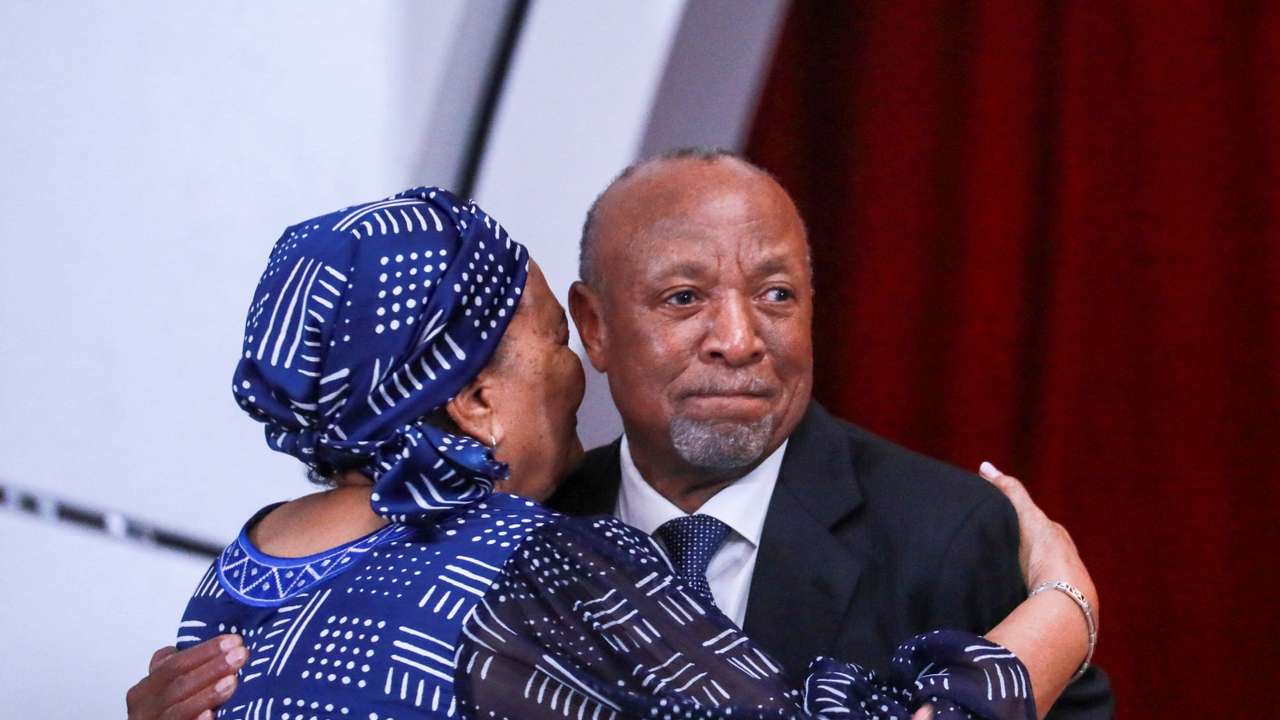Namibia Roundup: Killing of a million seals, drought relief, return of descendants

Namibian opposition wants to kill one million seals
Namibian opposition Rally for Democracy and Progress (RDP) has unveiled an initiative aimed at halving Namibia's seal population over the next decade, should they emerge victorious in the forthcoming elections. RDP presidential candidate Mike Kavekotora said that this drastic reduction could potentially double fisheries revenue while simultaneously creating 40,000 jobs. The RDP's agenda also includes recovering misappropriated state resources and bolstering local economic engagement. Kavekotora voiced strong critiques against the ruling SWAPO party for allegedly lacking vision and failing to prioritise the people's needs, the Namibian reports
United States to enhance Namibia’s energy security
The United States has committed to enhancing Namibia's energy security and positioning the country as a regional leader in clean energy. This initiative encompasses various sectors, including green hydrogen, solar, and wind energy. At a ceremonial signing in Windhoek, US Ambassador to Namibia Randy Berry highlighted the critical nature of bilateral cooperation in the energy domain, aimed at facilitating Namibia's aspiration to become a net exporter of renewable energy. According to the Namibian, the agreement, which spans a five-year duration, will prioritise innovative technologies and the expansion of renewable energy generation capabilities.
UN provides $3million in drought relief
The United Nations has responded to Namibia's urgent needs by allocating $3 million (approximately N$53 million) from the Central Emergency Relief Fund to tackle the escalating drought crisis. This funding infusion is aimed at strengthening the government's drought response strategy, effectively targeting support for around 163,000 individuals through a spectrum of interventions, including food assistance, nutrition, water, sanitation, hygiene, and protection against gender-based violence. The initiative, spearheaded by prominent organisations such as the World Food Programme, UNICEF, and the UN Population Fund, seeks a dual approach of immediate relief and fostering long-term resilience, with a particular emphasis on the most severely impacted regions, as reported by the Namibian. This drought crisis has been exacerbated by the El Niño climate phenomenon, posing severe threats to the agricultural landscape and overall food security in Namibia.
Assistance from Nigeria in tackling corruption
Namibia's government has sought assistance from Nigeria's Independent Corrupt Practices and Other Related Offences Commission (ICPC) to enhance the training of Namibia's Anti-Corruption Commission (ACC) in combating corruption and recovering embezzled assets. During a recent engagement at the ICPC, Namibian Ambassador to Nigeria Humphrey Geiseb highlighted Nigeria's pivotal role in providing expertise to fellow African nations. ICPC Chairman Musa Adamu Aliyu expressed the commission's readiness to extend support to African anti-corruption bodies, emphasising the potential advantages of collaborative endeavours, local news outlet the Observer reported.
Return of ethnic descendants
Namibia is prepared to welcome back descendants of the Ovaherero ethnic group who had sought refuge from the atrocities of German colonial rule in the early 20th century. The Namibian government has allocated five commercial farms to facilitate the resettlement of nearly 100 returning Ovaherero individuals, allowing them to reconnect with their ancestral heritage and homeland, VOA reports.